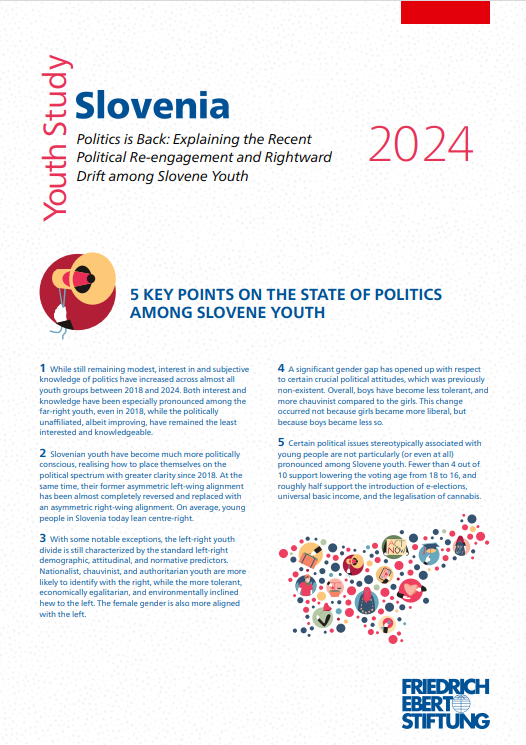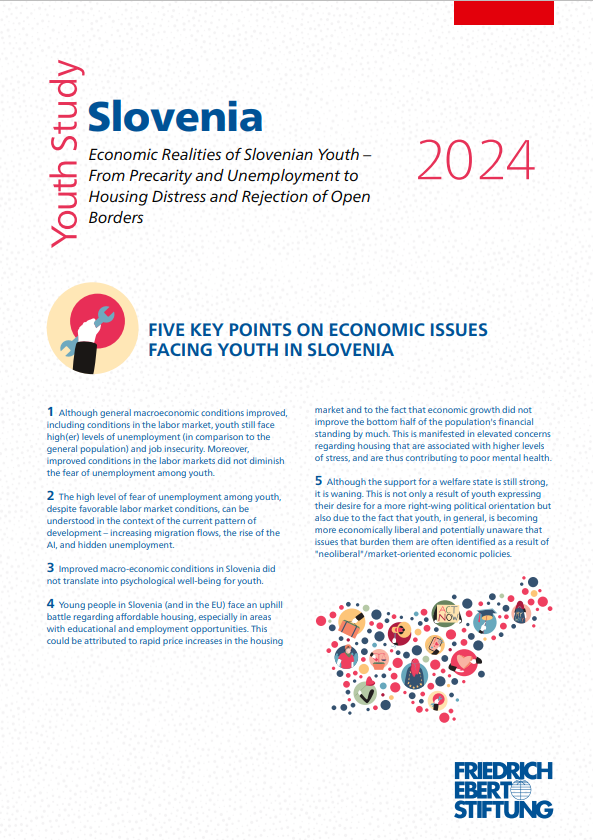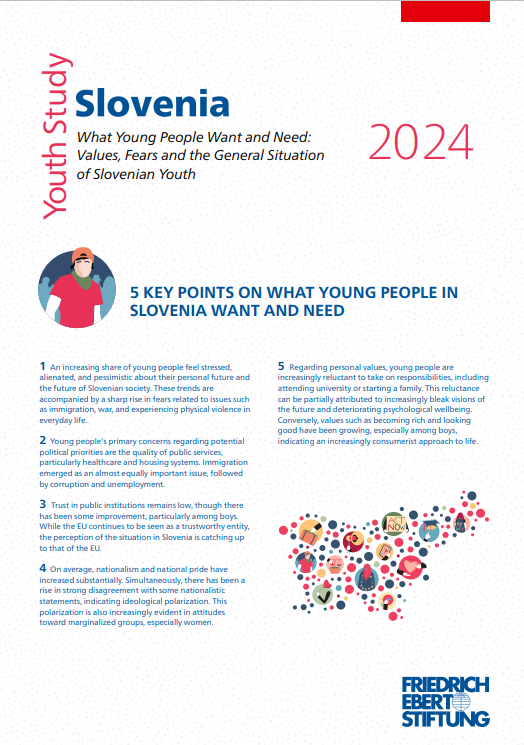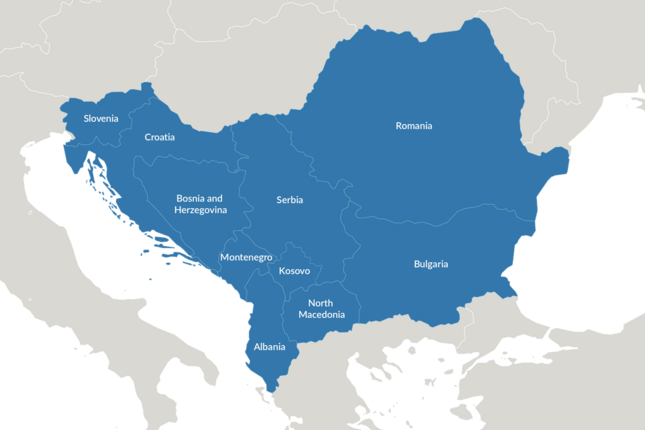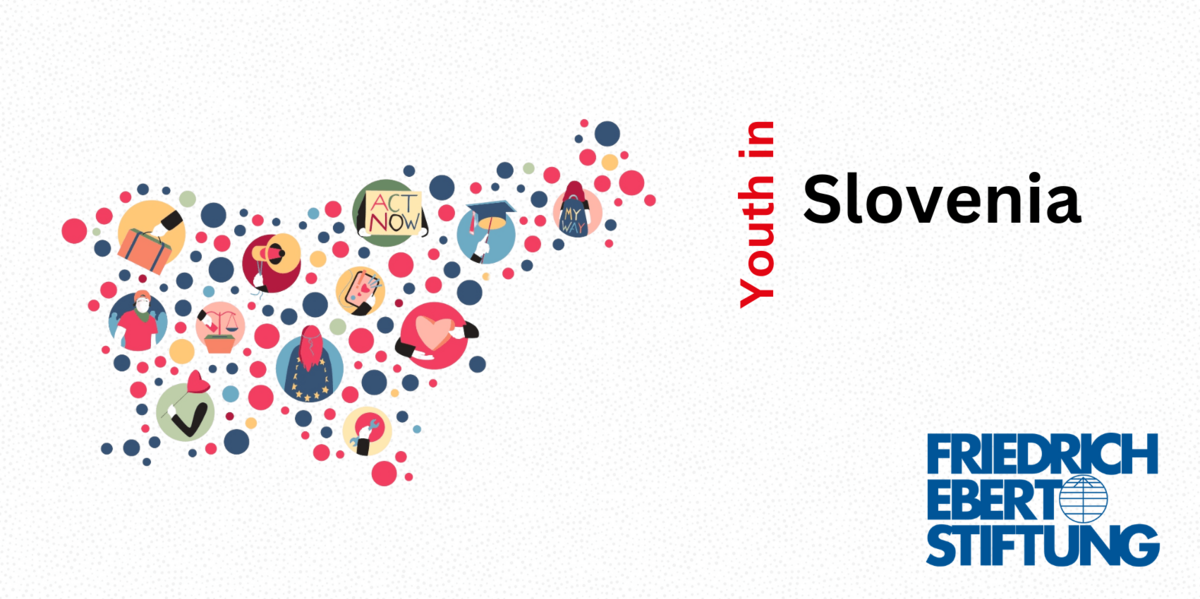
Youth Studies: Slovenia
Slovenian Youth's Perspectives on Pressing Issues for the Coming Decade
The Friedrich Ebert Foundation's 2024 Youth Study survey data provides valuable insights into the concerns of young people in Slovenia regarding the most pressing issues for the next decade. This study is a crucial document that sheds light on the attitudes, expectations, and priorities of Slovenian youth, thereby informing policymakers, educators, and social leaders about the challenges and opportunities that lie ahead.
In this article, we will delve into the top issues identified by the youth, explore the nuanced relationship between justifiability of bribery and public service quality concerns, and discuss the implications of these findings for policy development. Understanding these perspectives is vital for creating a future that aligns with the aspirations and needs of the younger generation.
Ranking of Issues for the Next Decade
The chart below ranks the issues based on the percentage of respondents who consider each topic to be a significant issue for the next 10 years:
The survey results indicate that the quality of public services, immigration, and corruption are the top concerns for Slovenian youth. Specifically, 54.84% of respondents consider the quality of public services to be a significant issue, followed closely by immigration (54.13%) and corruption (51.51%). This ranking underscores the multifaceted nature of the challenges facing Slovenia in the coming years, with both domestic and international dimensions.
Relationship Between Justifiability of Bribery and Perception of Public Service Quality Issues Among Slovenian Youth
The survey also explores the relationship between attitudes towards bribery and concerns about future public service quality. Respondents were asked when they consider accepting or giving a bribe justifiable and whether they think the quality of public services (health, education) is an issue that concerns them.
Interestingly, there is a notable relationship that shows the more willing one is to justify accepting or giving a bribe, the less worried they are about the quality of public services. The graph below illustrates this relationship:
This finding reveals an intriguing aspect of the ethical landscape among Slovenian youth. It suggests that those who are more likely to justify bribery may have a different perception of systemic issues compared to their peers who condemn such practices. This could have profound implications for anti-corruption policies and initiatives aimed at improving public trust in services.
Key Takeaways
- The quality of public services, immigration, and corruption are the top concerns for Slovenian youth, with 54.84%, 54.13%, and 51.51% of respondents respectively considering these issues significant for the next decade.
- There is a notable correlation between the justifiability of bribery and concerns about public service quality, with those more willing to justify bribery being less concerned about the quality of public services.
- Understanding these concerns and attitudes is crucial for developing effective policies that address the root causes of dissatisfaction among youth and foster a more equitable and transparent society.
Policy Implications
The insights from this study highlight the need for targeted policy interventions that address the specific concerns of Slovenian youth. Given the high importance placed on public service quality, immigration, and corruption, policymakers should prioritize initiatives that enhance transparency, improve service delivery, and foster inclusive growth.
Moreover, the relationship between bribery justifiability and public service concerns suggests that anti-corruption efforts must go hand-in-hand with broader educational and ethical campaigns. Promoting a culture of integrity and accountability can help the criminalization of bribery and raise further awareness about its detrimental effects on society.
On the Data
The data was taken from the 2024 Slovenian Youth Study "What Young People Want and Need: Values, Fears and the General Situation of Slovenian Youth". It investigates the opinions of people aged 14-29 years on a broad range of topics such as education, employment, political participation, family relationships, and values. Read the full study here.
